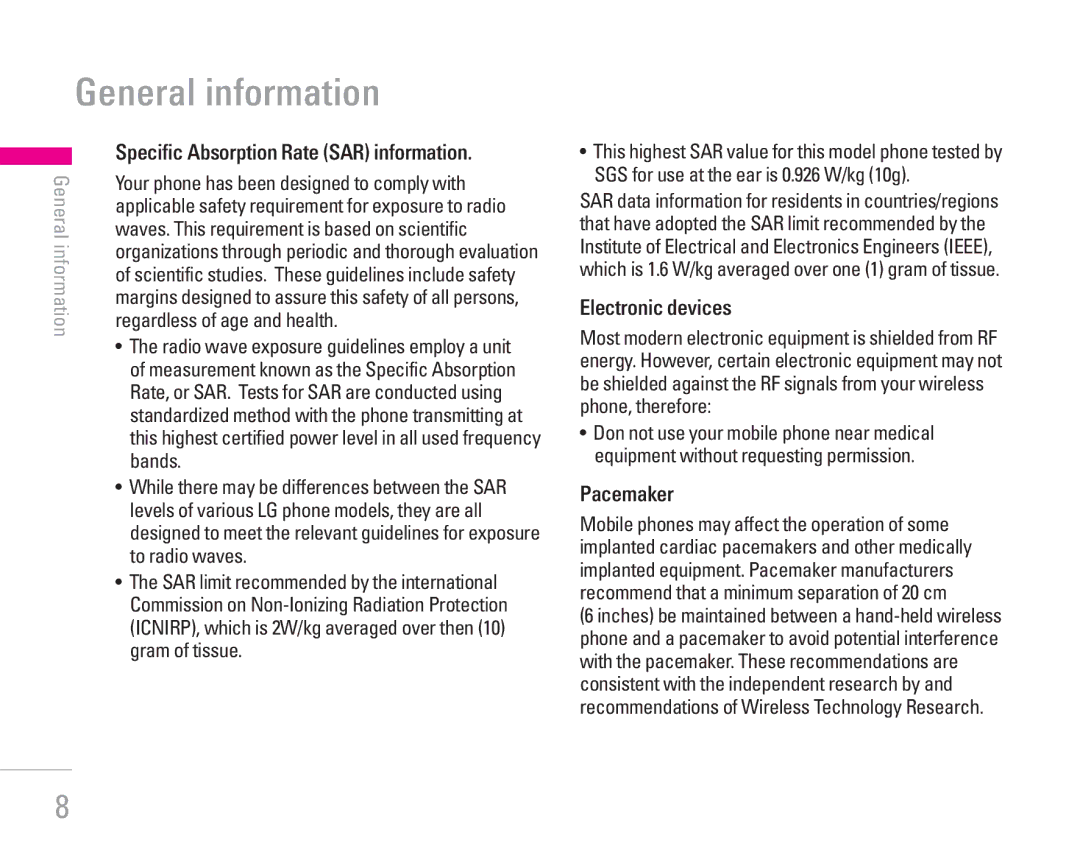General information | ||
Specific Absorption Rate (SAR) information. | ||
| ||
General | Your phone has been designed to comply with | |
waves. This requirement is based on scientific | ||
| applicable safety requirement for exposure to radio | |
information | organizations through periodic and thorough evaluation | |
of scientific studies. These guidelines include safety | ||
| ||
| margins designed to assure this safety of all persons, | |
| regardless of age and health. | |
| • The radio wave exposure guidelines employ a unit | |
| of measurement known as the Specific Absorption | |
| Rate, or SAR. Tests for SAR are conducted using | |
| standardized method with the phone transmitting at | |
| this highest certified power level in all used frequency | |
| bands. | |
| • While there may be differences between the SAR | |
| levels of various LG phone models, they are all | |
| designed to meet the relevant guidelines for exposure | |
| to radio waves. | |
| • The SAR limit recommended by the international | |
| Commission on | |
| (ICNIRP), which is 2W/kg averaged over then (10) | |
| gram of tissue. |
•This highest SAR value for this model phone tested by SGS for use at the ear is 0.926 W/kg (10g).
SAR data information for residents in countries/regions that have adopted the SAR limit recommended by the Institute of Electrical and Electronics Engineers (IEEE), which is 1.6 W/kg averaged over one (1) gram of tissue.
Electronic devices
Most modern electronic equipment is shielded from RF energy. However, certain electronic equipment may not be shielded against the RF signals from your wireless phone, therefore:
•Don not use your mobile phone near medical equipment without requesting permission.
Pacemaker
Mobile phones may affect the operation of some implanted cardiac pacemakers and other medically implanted equipment. Pacemaker manufacturers recommend that a minimum separation of 20 cm
(6 inches) be maintained between a
8
